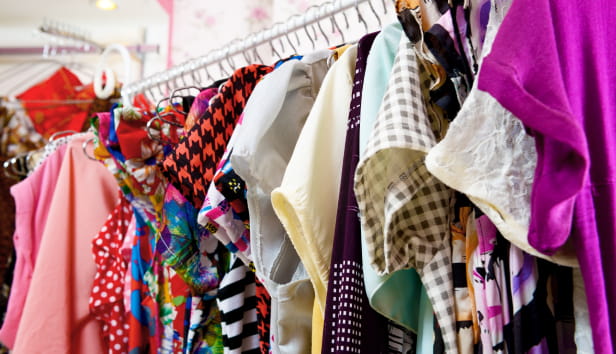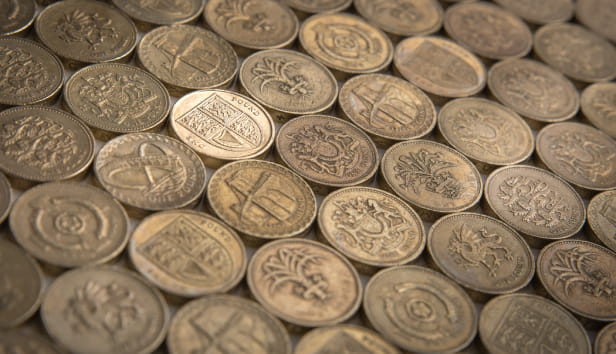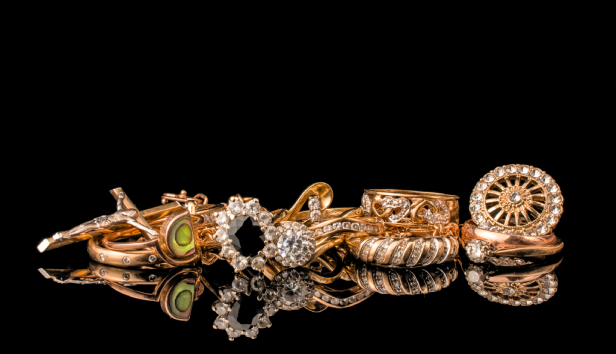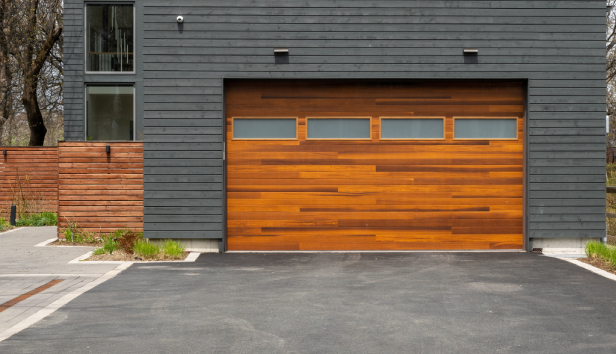.jpg?la=en&h=650&w=1440&hash=D2D232A61FCEAEBDC0D69D8AE38E8E41)
This article is for general guidance only and is not financial or professional advice. Any links are for your own information, and do not constitute any form of recommendation by Saga. You should not solely rely on this information to make any decisions, and consider seeking independent professional advice. All figures and information in this article are correct at the time of publishing, but laws, entitlements, tax treatments and allowances may change in the future.
Medals aren’t just a piece of metal – they can hold so much sentimental value. They’re the kind of things we find tucked away in storage while helping family members de-clutter, perhaps ahead of a house move.
You may be wondering whether to hang on to them or sell them to raise some extra cash, and the decision isn’t easy to make. The good news is medal collectors are passionate about these treasures and are keen to find out the story behind them, so there may be some demand.
Mark Smith often appears on Antiques Roadshow and runs the medal department at auction house Baldwin’s. Like his fellow enthusiasts, he doesn’t just see medals as pieces of metal.
“Medals aren’t just medals. They’re emotive things. When people came home from the first or second world war, they often put them in a box in the back of their sock drawer and didn’t talk about them,” he says.
“When you find those medals, you might think about selling them. But when your grandchildren are taught about the second world war at school, they start to understand the historical value and that great-grandad is a hero.”
Jump straight to:
If you’re helping a family member declutter their home, you might come across a military or sporting medal. Richard Beale, who values medals and other collectables at auctioneers Warwick & Warwick, says the most collectable are military medals.
“Generally speaking, sports medals are interesting rather than valuable, unless they’re high profile,” he adds.
Military medals could come from the first or second world war or more recent conflicts such as Afghanistan, but awards from the Battle of Waterloo also come up at auction. Because medals awarded in the second world war were issued to many servicemen and women, they tend to be less valuable, but there are exceptions.
The order of precedence sees the Victoria Cross as the premier award, along with the George Cross. There have only been around 1,350 Victoria Cross medals awarded for great bravery since its inception in 1956.
Those sold at auction have won widely varying prices. Usually sold as part of a set of an individual’s medals, auction prices have ranged from £2,800 into six figures. One exceptional auction price was £1.5 million for the medals of Captain Noel Chavasse, an Olympic athlete who is one of only three people to be awarded the Victoria Cross twice, including the only VC and Bar of the first world war.
Medals are designed to be durable and they’re intended to be worn with pride, so don’t worry if you haven’t wrapped them in cotton wool and hidden them away. Ideally you would keep them dry, advises Beale.
“Collectors know they’re going to be worn with pride, so you don’t need to keep them locked away in their box. If someone’s on parade they’ll give them a bit of a shine to make them look better, but the condition wouldn’t necessarily affect their value,” he adds.
Some families decide to split their relative’s medals so everyone has a memory of their beloved hero, but if you’re thinking of selling them it’s better to keep them together.
“Splitting a collection might seem like it’s fair for siblings, but it’s a disaster from a collectors’ point of view because they want every medal one person was awarded. Collectors will pay more for the entire set,” says Beale.
If you have missing medals, you could search Medal Tracker to find them.
You won’t find a name on military medals, so instead look at the box or paperwork they come with.
“Provenance and story are very important,” says Smith of Baldwin’s.
“Medals don’t have names on, but the cardboard box they came in does, so that’s where you have your provenance. You’ve also got medals to people who were killed in the second world war and they come in a box with a slip of paper with the name of who they were awarded to.”
Smith says there are three places a medal should be: with the person who was awarded it; with the family; or with a collector who’s going to love it in the same way.
He admits that although there’s a market price for medals, it’s harder to value them when they come with such incredible stories. That’s where a specialist’s painstaking research comes in.
“We always ask: what would someone pay for this?” he says. “Ladies’ medals command more money than men’s because there are fewer of them and their stories are always exciting.
“The other day I valued some medals awarded to a Dambuster for their part in the 1943 raid in Germany. The medals themselves could be worth £6,000, but they came with the log book which recorded all the trips he did. So the value went up from £6,000 to £60,000.”
Beale says one of the most important factors is the size of the unit in which the men or women served. “While the Royal Artillery is a body of many thousands of men, certain regiments are more specific, for example Staffordshire or Middlesex Regiments. People have an emotional collection to the regiment if they had relatives who served in them.”
More recently awarded medals have value too, with Beale noting that some of the more expensive items have been from modern campaigns such as Iraq and Afghanistan.
“We had a Conspicuous Gallantry Cross with us a few years ago from action in Iraq and we got over £50,000 for that,” he says. “But if you want to start collecting medals, it’s still accessible. You don’t need deep pockets to buy historically interesting things.
“In the first world war, you were awarded the 1914-15 Star if you were serving at the start, then could also get the British War Medal and victory medal. You can start collecting those if you’ve got £40 or £50, or you could pick up the trio for £70.”
.jpg?sc=max&mw=800&h=450&la=en&h=731&w=1300&hash=5A08222136EFE9172D831E8E13E33BD3)
Reputable collectors know that medals hold huge sentimental value, so they won’t just be looking at a quick sale. If you’re thinking of selling, take your time and make the right choice. Online sites such as Vintage Cash Cow and eBay might be an option, but you’re likely to get a more accurate price from a specialist auction house.
Noonans, Baldwin’s, Bosleys, Warwick & Warwick and Morton & Eden are among the auctioneers who specialise in models and militaria. And if someone offers you the silver scrap price for it, think hard about whether it’s really worth selling.
Specialists not only give the medals the respect they’re due, they have contacts with collectors who are passionate about them.
“Medal collecting is a small world and a lot of buyers will stick with reputable auction houses,” says Beale. “We’ve spent decades building up a clientele of collectors and a lot of our best customers don’t really want to buy off eBay or similar sites, they want to know what they’re getting and it gives them confidence.”
The first step if you’re approaching a reputable auction house is to send a photo, then a specialist will contact you to help you get the right price.
Smith says: “If it’s a small value, you might want to keep it, but if it’s valuable you might worry about having it hanging around the house. Quite often, people sell the medals and then buy something that means something to them with the proceeds. They’re happy to see them go to someone with real passion as a collector.”



Discover our easy ways to take control of your finances, from doing your tax return to assessing your savings.
/mature-couple-looking-at-taxes.jpg?la=en&h=650&w=1400&hash=5CFABEEDC751F26D56DD3E85749E3C36)


Hunt out those old pound coins and banknotes to see how much they could be worth.
.jpg?la=en&h=354&w=616&hash=458B0288E9852F4B63A433E2FDD375E7)


